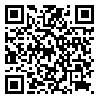BibTeX | RIS | EndNote | Medlars | ProCite | Reference Manager | RefWorks
Send citation to:
URL: http://jdisabilstud.org/article-1-2363-en.html
2- Associate Professor, Department of Psychology, Marvdasht Branch, Islamic Azad University, Marvdasht, Iran
3- Assistant Professor, Department of Psychology, Marvdasht Branch, Islamic Azad University, Marvdasht, Iran
Abstract
Background & Objectives: The concept of academic self–handicapping is considered a common psychological trauma among learners of educational systems. Achieving educational goals, maintaining, promoting, and improving the mental health of school and university students are among the goals of every education system. Therefore, identifying problems and variables related to these factors is of critical value. People face many tasks and goals with varying levels of difficulty, reflecting their chances of success or failure and their beliefs. Experiences often play a key role in determining the motivation for doing tasks, future goals, and people’s willingness to face new tasks in a phenomenon called self–handicapping, which has a major role in this respect. The present study aims to explain the mediating role of emotional self–regulation and goal orientation in high school students' attributional style and academic self–handicapping.
Methods: This descriptive–correlational research was conducted using a structural equation modeling on senior high school students of Shahed schools of Yasouj City, Iran, in the academic year of 2018–2019. According to officials of the Education Department, the study population was estimated to be 640 people, of which 280 were selected through a multi–stage cluster random sampling method. Some answers were excluded due to outliers and incomplete questionnaires, and the data of 259 students (130 males and 129 females) were analyzed. The inclusion criteria were as follows: being the child of a veteran and a martyr, being a Shahed school student, and having consent to fill out research questionnaires. The exclusion criteria were as follows: not completing the questionnaires, and being data outliers, for example, choosing only one option in the questionnaires. Research tools were Achievement Goal Questionnaire (AGQ) (Elliot & McGregor, 2001), Academic Self–Handicapping Scale (ASHS) (Schwinger & Steinmeister Plasterer, 2011), Attributional Style Questionnaire (ASQ) (Peterson et al., 1982), and Motivated Strategies for Learning Questionnaire (MSLQ) (Bouffard et al., 1995). Data were analyzed with the Pearson correlation coefficient and structural equation modeling at an error level of 0.05 in SPSS version 23 and AMOS version 24 software.
Results: Results showed the direct effect of attributional styles on academic self–handicapping (β=–0.23, p<0.001), achievement goal orientation (β=0.39, p<0.001), and self–regulation (β=0.44, p<0.001) was significant. Also, the direct effects of achievement goal orientation (p<0.001, β=–0.20) and self–regulation (p<0.001, β=–0.23) on academic self–handicapping were significant. The indirect effect of attributional styles through the achievement goal orientation (p < 0.001, β = –0.078) and the indirect impact of attributional styles through self–regulation (p<0.001, β=–0.10) on academic self–handicapping was significant. In addition, the research model had a good fit with the collected data (RMSEA=0.025, GFI=0.98, NFI=0.98, CFI=0.99, χ2/df=1.15).
Conclusion: Based on the research results, attributional styles with the mediating role of self–regulation and achievement goal orientation can be a good model for explaining academic self–handicapping. So, it is possible to improve the performance of students.
| Rights and permissions | |
 |
This work is licensed under a Creative Commons Attribution-NonCommercial 4.0 International License. |



